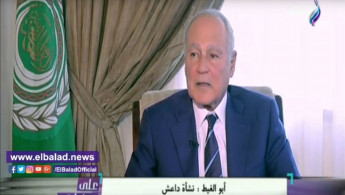Saudis furious after Egyptian diplomat says Assad should remain
Former Egyptian foreign minister Ahmed Aboul Gheit said on Monday that the Syrian strongman could stay in power if the Syrian people agreed, prompting Saudi Arabia to reportedly call for him to step down.
"I mean if the people elect him he can run in elections, however, there first must be a ceasefire and acceptance of his presence as a part of a reconciliation deal because it is highly likely that groups would refuse to work with him," Aboul Gheit told Egyptian talk show host Ahmad Moussa.
His position is a departure from many Gulf and Western powers who have repeatedly called on the embattled Syrian leader to step down.
Egyptian President Abdel Fattah al-Sisi recently expressed support for the Syrian military during a recently aired interview with Portuguese state media.
His government had been supported by billions of dollars in aid from Saudi Arabia, but ties appear to have cooled between the two countries amid disagreements over Syria.
Saudi Arabia backs rebels trying to oust Assad, while Russia and Iran are supporting him militarily.
Egyptian and Saudi sources told The New Arab on Thursday that Aboul Gheit's comments on Assad remaining in power have angered Saudi officials and prompted them to send an "angry letter" to the General Secretariat of the Arab League.
"Riyadh hinted in the letter that it could stop funding Arab League activities and demanded that Aboul Gheit's position be reconsidered," the sources said.
They added that Aboul Gheit's "entanglement" between his role as head of Arab League and a mouthpiece for the Egyptian government has annoyed many Saudi officials.
The diplomat also accused Turkey of having supported the Islamic State group [IS] in the past.
"It has been bothersome that there have been question marks surrounding Turkey's actions as it has allowed hundreds if not thousands of young people from Europe and Arab countries to flow into Syria and Iraq," Aboul Gheit said.
"It has been said – however I do not have certain information about this – that [Turkey] allowed its existence to facilitate the downfall of the Syrian government until [IS] turned against them."
He accused Turkey of allowing IS to raise funds by smuggling oil across the Turkish border – claims echoed by Russian President Vladimir Putin last year.
Relations between Turkey and Egypt sharply deteriorated after the Egyptian military ousted Islamist president Mohamed Morsi in 2013, a close ally of Turkish President Recep Tayyip Erdogan.





 Follow the Middle East's top stories in English at The New Arab on Google News
Follow the Middle East's top stories in English at The New Arab on Google News
![Israeli forces ordered bombed Gaza's Jabalia, ordering residents to leave [Getty]](/sites/default/files/styles/image_330x185/public/2176418030.jpeg?h=a5f2f23a&itok=_YGZaP1z)

